Podcast: Download (Duration: 34:05 — 28.1MB)
Subscribe: Spotify | TuneIn | RSS | More
Audiobooks are the fastest growing segment in publishing. Most authors license their audio rights and work with professional narrators to produce their books, so why might you consider narrating your own audiobook?
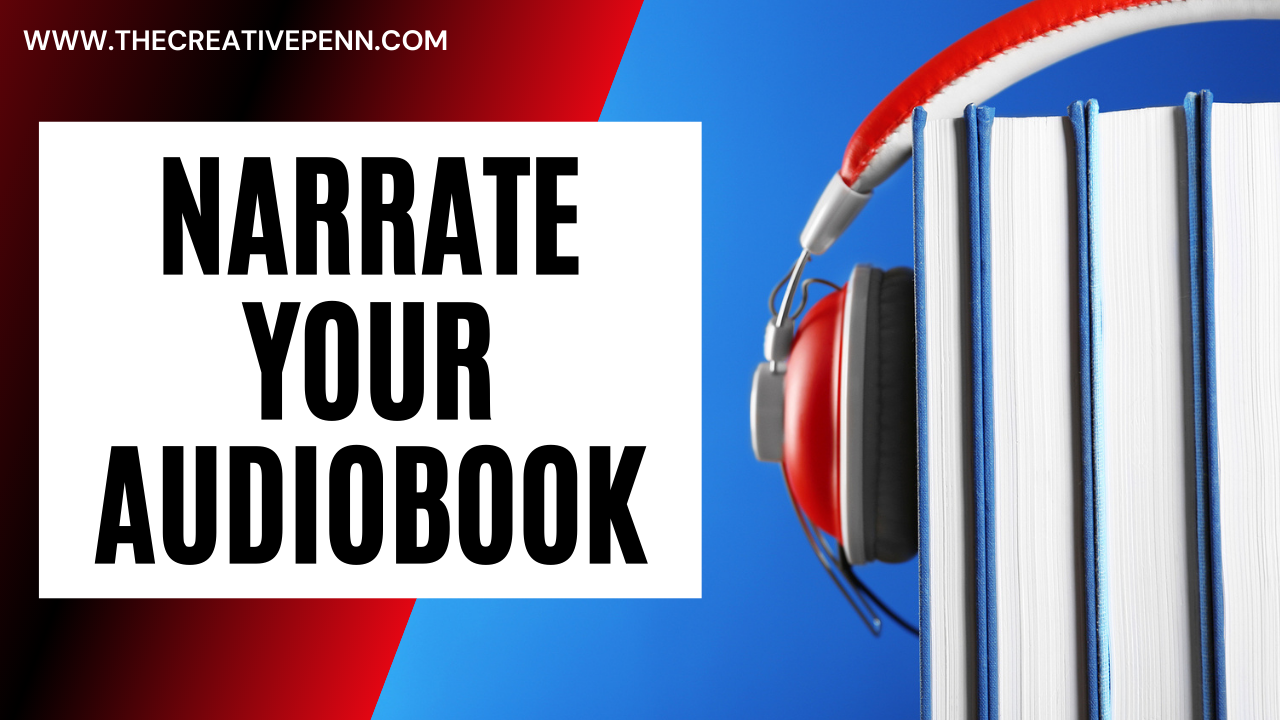
Here's why I am doubling down on narration in 2019 and why you might consider narration for your own books.
(1) You love audio
I presume you're reading (or listening to) this because you love listening to audio. Yes, it's a growth segment in terms of income, but if you don't love a medium, you will not master it.
When people ask about writing a book but say they do not read, I tune them out, because they will likely never be successful as an author. Why would they be? They don't spend time devouring books. The same applies to audio. Don't even think about narrating audio unless you love it.
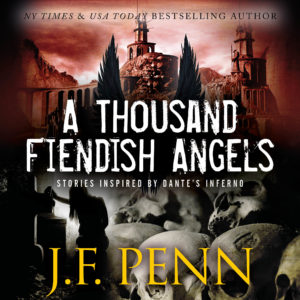
Thinking back, I listened to tapes when I was young. I remember Prokofiev's Peter and the Wolf and The Prisoner of Zenda in particular. I listened to those over and over again and found more at the library in those plastic cases that used to get so grubby (remember those!). Years later, I listened to self-help tapes and later still, downloadable audio MP3s before they become podcasts and digital audiobooks.
Humans have always escaped into stories told around the fire and lives have been changed, for both good and bad, through the power of the spoken word.
Audio is a powerful medium. You have to love it if you want to master it.
(2) The power of voice to build connection in a crowded market
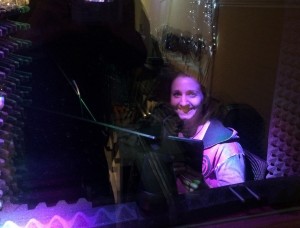
There are a lot of books in the world, and more are published every day. With the advent of AI tools that will generate more text or mass translate existing works, there will only be more content for people to consume.
So, how do you stand out and build a sustainable author business for the long-term?
I've been podcasting for 10 years now, and although I've written 28 books, more people tell me that I have helped them through the podcast than through my writing. I listen to lots of podcasts too, and you feel as if you know the speaker. If people have your voice in their head, it's an intimate experience.
There is so much more than words in a voice.
The interesting thing with audiobooks, in particular, is that a ‘reader' must connect with the voice of the author in the story, but also the voice of the narrator who brings the book alive. Finding a voice to speak your words can be a challenge, especially one that fits your budget! But when you narrate your own work, your voice is consistent. It cannot be a bad match because it's the same voice.
An author who also narrates is memorable.
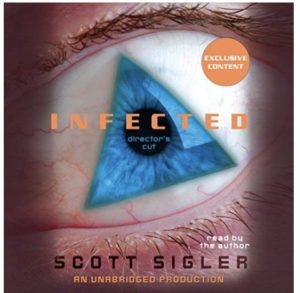
[Listen to my podcast episode here with Scott Sigler on moving from self-publishing to traditional deals as well as podcasting and audiobooks.]
Voice builds connection and in an increasingly crowded market, we all need connection with readers to sustain a creative career.
(3) Improve your writing skill and characterization
Reading your work aloud can dramatically improve your writing craft.
With non-fiction, you are forced to read aloud sentences that might be full of jargon, or difficult to read or make sense of. You will end up editing for content, structure and flow.
With fiction, every character needs a ‘voice,' so you have to think hard about who they are, taking them off the written page and into spoken dialogue. I've ended up rewriting dialogue as I read it aloud because the character developed in such a way that I now know they wouldn't speak like that.
[Independent authors have control of later editions, and updating a previously published book is not difficult with print-on-demand and ebooks. More on publishing here.]
You will become a better storyteller because you are performing your story, thinking about your listener far more than you do when you're writing the book.
Regardless of genre, it's another line edit and you often pick up things you missed while ‘reading' in your mind, or even that a proofreader missed.
You will also notice repeated sounds rather than repeated words, which I have also been editing out. For example, consider the words: peak, Monique, speak. They have different meanings and different spellings but the same sounds. If repeated in a sentence or two, they produce the same feeling as a repeated word which is much more common in our writing, but most of us edit out in the drafting process.
(4) Create another intellectual property asset (and another stream of income) that you control
Your book is not one book. Your manuscript is an intellectual property asset that you can turn into multiple products and multiple streams of income.
Independent authors have mastered ebooks and print-on-demand over the last 10 years. We can publish on almost every global platform these days and produce editions as diverse as mass market paperback, hardback, and large print.
As independent authors, we like to control our assets, publishing them to new platforms when they become available, expanding our streams of income into the global market. At least, this is what I love to do!
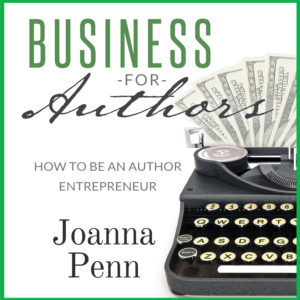
You can choose your price and sell to libraries, and as more opportunities arise, you can jump in and explore them — if you control the rights.
Many authors accept audiobook deals because they don't want to, or can't afford to, produce the books themselves. Of course, there are stories of incredible audiobook opportunities and even six-figure+ deals and that would be something I'd jump on if it came along!
But for many, the deals are not so exciting and some authors sign contracts they regret later. Many also start with royalty split deals which can be a fantastic way to get into audio without outlaying too much cost. I certainly did royalty share deals at the beginning before I had the money to invest to pay upfront and keep all the rights.
But what if you could spend your time rather than your money and narrate your book yourself — and control the timing?
(5) Self-development and increased self-confidence in performing your creative work
At the time of writing this, I have still never read my fiction in public. I've spoken professionally all over the world, but I have never read so much of a line of my novels.
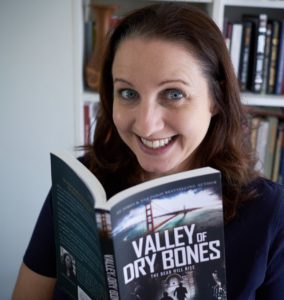
But no more.
The process of learning to narrate my fiction has given me confidence because audiobook narration is essentially a performance.
It's an adaptation of the words on a flat page and my voice brings them alive.
(6) Development of another skill and extending your body of work
Through the process of voice coaching and learning about narration, I am discovering a whole world of sound that I didn't know about before. I'm learning more about my body and my voice as an instrument, about how to care for something I have always taken for granted.
As a learning junkie, this is so much fun!
I also appreciate extending my body of work into the audio sphere. I don't like relying on one way of making money, because change happens fast and if you rely on one company, or one product, or one form on income, you may find yourself running out of money someday.
I intend to be writing and creating for at least the next 50 years, and developing audio as part of my body of work is an exciting possibility.
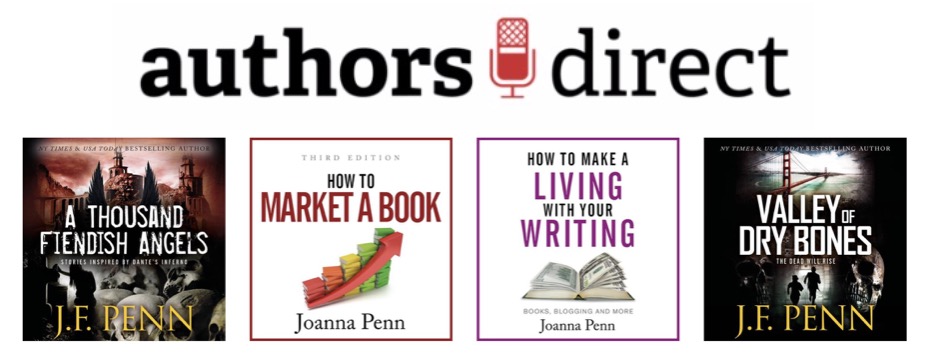
I once visited the attic storeroom of a well-known voice talent who has narrated books for 40+ years. The shelves were full of tapes and CDs representing a huge body of work that was far more significant than the films and TV shows she is more well-known for. I'm just starting out but what will my attic shelves look like when I am in my later years?
(7) Marketing within a genre
I have only narrated my own books right now, but I can see a point where I would narrate other books that related to my brand. Audio listeners become a fan of the narrator, not just the author, and will follow them from book to book.
If I narrated other books in the same genre, then that may lead more readers to my work. It's certainly a way off yet, as it takes a lot of time and energy to narrate and edit, as well as a budget for mastering. But it's on my longer-term plan.
Audio is also a significant chunk of my non-fiction book sales these days, so why not fiction?
Part of the reason is marketing. Even though I have far more fiction audiobooks than I have non-fiction, I have a non-fiction form of audio marketing through The Creative Penn Podcast.
I'm currently working on a new site and new podcast that will relate to my fiction, so I am developing a marketing platform for that other side of my creative self.
In conclusion, I am thrilled to have my stories in the world in another format and I'll be doing more audio from now on. I'll still work with other narrators for some books, but I'll also be recording my own.
What do you think about authors narrating their own audiobooks? Please do leave any thoughts, questions, or your experience in the comments.
Ready for the next step?
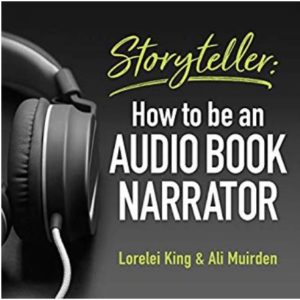
- What I learned from narrating 25 of my own (fiction) audiobooks by M.L.Buchman on Findaway Voices blog
- Storyteller: How to be an Audiobook Narrator (audiobook only) – Lorelei King and Ali Muirden
- Audio for Authors: Audiobooks, Podcasts, and Dictation for Fun and Profit – Bradley Charbonneau
- Narrated by the Author: How to Produce an Audiobook on a Budget – Renee Conoulty
Want to try some books read by the author? Check these out:
- A Thousand Fiendish Angels – J.F.Penn
- Business for Authors: How to be an Author Entrepreneur – Joanna Penn
- Infected – Scott Sigler
- The Graveyard Book – Neil Gaiman
- Wildfire at Dawn – M.L.Buchman
- Shades of Milk and Honey – Mary Robinette Kowal
- On Writing: A Memoir of the Craft – Stephen King


Joanna, it’s a great strategy to use your 12K-word book as a debut creating an audiobook. The pros who narrate audiobooks say that book narration is the hardest work a voice talent/performer will ever do. (Payment by the hour turns out to be a killer for them. An average novel is about 9-11 hours of recorded time; you can expect twice that to get a good set of takes.) Easier with some training. Edge Studio had a nice course in 2017 that included a package of live, participatory webinars plus six coaching sessions. Carol Monda was my coach. It helped that I had drama school training and stage experience. It’s like writing, indeed. If you apply yourself and have a modicum of talent, you’ll get an audiobook after the mastering.
Hi Joanna,
As an indi-author do you think home recording would suffice for my initial books? I don’t think working with a studio to master the audio is an option at at this point. I do own microphones and audio editing software.
Also, I think you recording your own audio books seems like a natural transition in your case as we all love hearing your voice!
Thank you
Thanks Michael, I actually record in my home walk-in-closet and then send the files off to be mastered. You don’t need to work with a studio as such, especially if you have your own mic and software etc. Check out the tech requirements and see if you understand them and can work with them: https://audible-acx.custhelp.com/app/answers/detail/a_id/6736/~/what-are-the-acx-audio-submission-requirements%3F
Thank you so much for sharing that link! By the way, your read through of A Thousand Fiendish Angels shocked me in the best way! The dichotomy between your chipper podcast voice and the somber narration was impressive.
Thanks 🙂 Fiendish Angels is edging into horror, so I can’t read it in a chipper way 🙂
Thanks Joanna for your informative article plus the link. They are very helpful 🙂
I’m looking at narrating two of my non-fiction books, one published already and the other about to be published; plus a number of my health based articles so your article is most timely 🙂
I have followed you with great admiration since I started writing my Trilogy. I am considering an audio book for my work, but in my trilogy, most of the hero’s and main characters are female, and yes I am a guy! I wonder about my voice for these people. Because fiction and science fiction have more than one character in the story line compared to an audio book about something with only one voice, can characters of different genders still come across as different people, when an audio is produced?
Have a listen to Scott Sigler as per my link or check out books narrated by male narrators that have female characters. It’s just a tonal difference. Readers/listeners are able to infer as long as they can differentiate.
Well done 🙂 I have stopped buying audio that is not narrated by the Author – even non fiction. I have sent a few back – the worst was a hefty historical where the well known Actor voice struggling with several Welsh characters on the ‘stage’ at the same time and several other regional accents in the same scene – it was awful – my Kindle read it better and my head supplied the accents. I would much rather listen to you read your work than your Narrators – even though they are pretty good they don’t have your delivery and they sound flat – if I had not listened to you for hours of Podcasts then that wouldn’t apply but I have never heard the Author of that historical either and they couldn’t have been worse than the actor. My fav historical fiction character ( different Author) had a change of Narrator for some books – and neither were good and totally missed the speed of that character and his noir humour – also sent back.
Interesting 🙂 I think the author always has a good sense of the meaning – and narrators can miss that – but most authors don’t want to narrate so it’s good to have a mix.
You are a very smart lady, Miss Joanna. Very smart indeed.
We are talking about doing this… and we can obviously do both the male and female voices. 🙂
Thank you, Joanna. Loved your narration and fully appreaciate the benefit of doing your own fiction reading after listening in – lots of benefits.
Hi Joanna,
I’m relatively new to your podcast, been following it for about 4 or 5 months now and have been listening with great interest to your audio journey. Sorry for being late to comment but I’ve just caught up on this episode. I loved every minute of it, thought you made excellent points from the craft perspective about the benefits of reading your writing aloud and was dying to hear you narrate your work, especially after you said you’d always refused to read your fiction in public in the past. I’m sure many writers feel the same way.
Listening to you read your work gave me goosebumps. It was such an authentic experience. Seriously, every author should narrate their own book!
Thanks so much for your thoughts – and I am so glad you enjoyed my narration. More to come 🙂
I loved this episode, thanks! In point 6, you mention voice coaching and learning about narration. Is there someone in particular you would recommend as a voice coach for podcasting/narration? Also, what other resources do you recommend for learning about narration (anything that isn’t linked already)?
Back when I started my podcast almost six years ago, I really wanted to learn how to use my voice properly, but then I just jumped into it and didn’t look into voice coaching. Now I feel like that’s something I really want to look into before starting to narrate my own books.
Thanks!!
If you want a voice coach in person, best to just google locally 🙂 That’s what I did! There are coaches who also do skype coaching, but I found the in-person stuff a lot better.
Spot-on, Joanna! I’m a narrator, and I love everything you are saying in this article. Things have been busy over here in my studio, but I’m really looking forward to taking some time out for this episode of the podcast.
Inspiring as always! I’m addicted to audio, so creating an audiobook of my recently indie-published novel is at the top of my list.
I’ve just found this Lynda.com course, which is a good intro to parts of the process (especially the ‘tricks for better line readings’ and ‘voice over for your own projects’ sections): https://www.lynda.com/Video-tutorials/Voice-Over-Video-Animation/647682-2.html
Some folks might have free access to Lynda.com from their local libraries. (Thanks San Francisco Public Library!)
Hi Joanna,
I always get so much out of your articles, so I share them with other authors and at times on my webpage and social media sites.
This article is very timely since I’ve decided to ask my husband to narrate the male voice on my novels and I the main protagonist, however, what to do when you have several protagonists?
I am also thinking of about using art and doing the narration on YouTube.
Any comments and advice are welcomed.
Thank you again and also to all the responders!
Hi Marta, Most audiobooks are single voice only, so one narrator performs the whole book. When there are more voices, that is usually a whole cast, so more like an audio production or audio drama. The best thing to do is find an audiobook that is like the one you want to produce and learn about how they did that. I only have experience with single narrator.
This was brilliant, Joanna. Thank you! I’ve just built the padded cell in the cellar for recording my books. So, finding your post – and the brilliant Findaway podcast you published a few weeks ago, is both timely and inspiring.
You’re so right, it adds a whole new level of enjoyment, and, hopefully, revenue.
Thanks again for your hard work and generosity.
Chris
Have fun in your padded cell 🙂
Very timely. Beyond rereading On Writing every year since it came out, I’m right now listening to it for the third time. There’s always something new to glean, and I love his reading his work (also listened to Bag of Bones, which SK narrated). I listened to American Gods narrated by Gaiman while driving 2400 miles across the US (yes, surreal). I’m sold, thanks!
Hi Joanna,
Great Podcast. Your narration was very atmospheric, and yes, the narrator’s voice disappeared into the mists of the story.
I narrated 6 episodes of my own epic sci-fi series and put them on YouTube. It was a lot of work to build a sound box, narrate, edit the sound, music, graphics, etc., but enjoyable, just like writing. Now, thanks to you, I plan to resume narrating the story for audio, and hopefully, my voice too will fade into the story canvas, so readers will see the landscape of the theme, plot and character. Thanks again for your great work.
Thank you for the wonderful article, Joanna. I didn’t listen to the podcast–I read the article out loud instead.
I can relate to your holding back with your fiction, but I’ve been poked and prodded for years about having audiobooks done on my fantasy series. Just couldn’t bring myself to try it and frankly, I couldn’t afford paying someone else, and was unwilling to give up any rights.
But on my dinky and seriously insignificant YouTube channel where I love to post my speed drawings from my world…I was contacted by a YouTube personality. A young man who was looking for my books on audio.
When I told him I didn’t have audiobooks, he asked why and I told him.
He asked for a list of what I needed through Amazon and to send him a link, which I did–thinking he might give me some tips, or…I wasn’t sure what.
About 10 minutes later I got a message from him: “Your new studio is on it’s way and should be there in a week. No strings.”
I can’t record at home–it’s too noisy, even at night. So I mentioned what I was doing with a ‘portable’ sound booth to my fans (PVC frame and doubled packing blankets sown into a snug cover to pull over it). The local librarian in my community is going to let me into the library after hours, so I can record in silence through the night!
Funny how things open when you turn your attention to do the things you SHOULD do, even if you don’t feel ready.
Thank you for being one of very, very few who talks about authors narrating their fiction. I’m still nervous, but hey–I have 13 kids, 16 grandkids and have been reading and acting out stories since my kids were born.
So wish me luck.
…and you keep being you, Joanna.
Cause the world needs more you.
Hi Jaime, WoW! That’s great to hear about people helping you with audio. I love the generosity of the Youtuber and also that the library is letting you record. All the best with it!